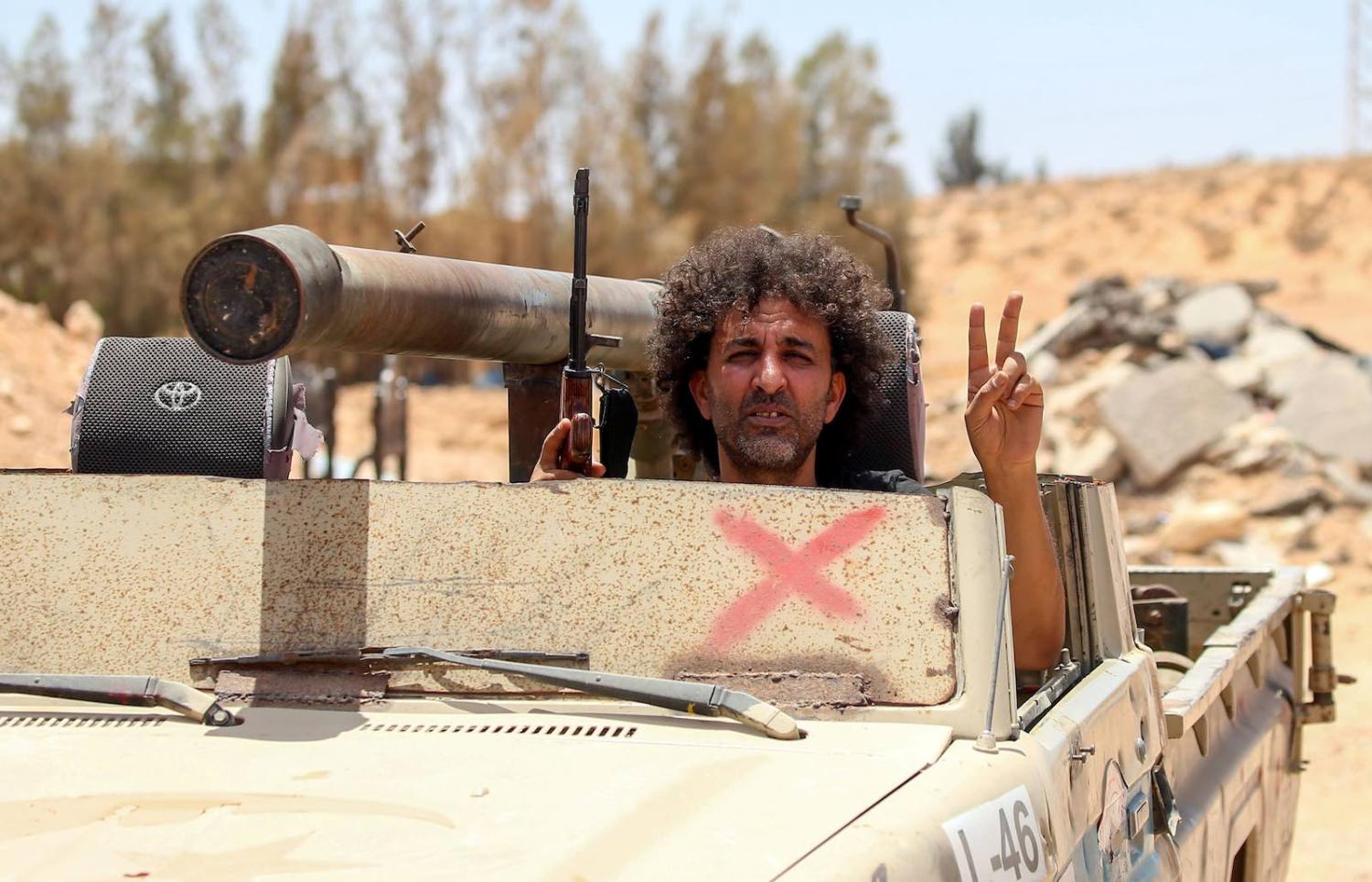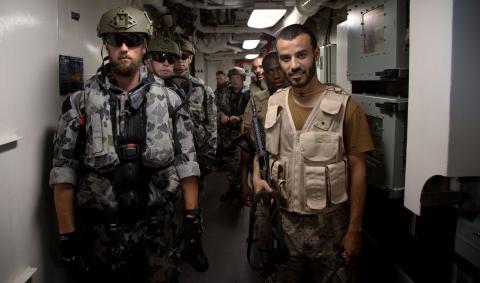Turkey’s reimagining of the Pax Ottomana has not made many friends in the region, and it currently finds itself at odds with Egypt, UAE and Greece to name a few. President Recep Tayyip Erdoğan has made very clear his ambition that Turkey will be a leader in the Mediterranean and in the Middle East and North Africa region. Turkey’s new strategic direction continues to be conducted with hubris and polemics as Erdoğan envisions Turkey’s role beyond a regional power to a “global one”.
Turkey’s engagement in Libya is one example and demonstrates a reorientation in Turkish foreign policy. Turkey continues to throw a lot of political and military weight in Libya and has tried to shift the balance of power in the conflict to its favour. Turkey’s supply of military equipment and financial support, as well as the deployment of Syrian mercenaries from the Syrian conflict, has tilted the scales in favour of Turkey’s ally – the Al-Sarraj interim Government of National Accord (GNA). GNA dominance is impeded, however, by General Khalifa Haftar’s Libyan National Army (LNA) which continues to receive financial and military support from Egypt, UAE, Russia and France.
With the dynamics of the conflict changing daily and powerful forces working against Turkish ambitions in North Africa and the Mediterranean, does Erdoğan have a grand strategy in Libya? And what is Turkey’s “endgame”?
Libya is no stranger to external intervention. The country continues to be ravaged by militia groups and political divisions since the fall of Muammar al-Gaddafi in 2011. Control over Libya’s oil lines and wealth is a crucial factor in the continuing conflict between different centres of power, including GNA, LNA and other militia groups. Other powers have backed their respective proxies for a say in the future of Libya’s vast hydrocarbon network.
Turkish involvement in Libya is a useful distraction, given the economic crisis raging through Turkey, and compounded by government inaction to the coronavirus pandemic.
The Libyan conflict is a litmus test for Turkey’s renewed and bellicose foreign policy activism in the Eastern Mediterranean. The Libyan front appears to be another “gamble” for Erdoğan as he seeks to foster ideologically friendly governments throughout the region. Since the 2013 coup in Egypt, Erdoğan’s Justice and Development Party (known as AKP) has increasingly and actively supported the Muslim Brotherhood and related Islamist groups throughout the region. The support of non-state Islamist actors in Syria and now in Libya has helped forge Turkey’s regional power project. Erdoğan’s support for the GNA (and its close relations with the Muslim Brotherhood) is key to Turkey’s regional ambitions in the Eastern Mediterranean.
A pro-Turkey and Muslim Brotherhood–aligned government in Libya would be a significant win for Turkish regional ambitions. It would signify a success for Turkey’s use of Islamist proxies in the region and provide legitimacy to Erdoğan’s ossifying authoritarian regime.
In reality, Turkey has neither the financial nor material capability to maintain itself as a regional power, despite the rhetoric funnelling out of the halls of Erdoğan’s Presidential palace. Greece, France and Israel are losing patience with Turkish bellicosity in the Eastern Mediterranean and are strategising to counter any Turkish moves in Libya. Erdoğan’s AKP is also tired and worn out, lacking vision in strategic policy and failing in its attempts to find solutions to the endemic social and economic ills at present in Turkey.
Turkey’s current foreign policy adventurism is intrinsically linked to domestic politics. Erdoğan’s tenuous alliance with ultra-nationalist factions within the Turkish state since the 15 July 2016 coup attempt has meant that Turkey’s foreign policy has taken on a more independent albeit Eurasianist strategic tilt. Turkey’s strategic outlook is now no longer about being the East-West bridge, but aimed towards becoming an active regional power in its immediate neighbourhood.

The “Blue Home strategy” – which lays claim to a large naval zone in the Mediterranean between Libya and Greece – is symbolic of this strategic shift. Turkey has recently signed a controversial maritime agreement with the GNA that demarcates each country’s maritime borders to their respective Exclusive Economic Zones. Gas reserves found in the Eastern Mediterranean region near Cyprus could provide a much-needed source of income for Erdoğan as declining FDI and a spiralling Turkish lira damage his grip on power.
Turkish involvement in Libya is a useful distraction, given the economic crisis raging through Turkey, and compounded by government inaction to the coronavirus pandemic. Erdoğan needs to secure a win in Libya if he is to have any chance of staving off the growing domestic economic and social issues occurring in Turkey. Erdoğan’s strategy in Libya is about domestic legitimacy as much as it is about regional projection.
Turkey’s Syrian engagement hangs heavy over its actions in Libya and will be keeping the Palace awake at night. Erdoğan’s failure to overthrow the Assad regime and lack of strategic vision is one of the reasons it remains embedded there today and the same could happen in Libya.
Despite his hubris, Erdoğan’s foreign policy gamble in the Libyan conflict will not provide Turkey the strategic leverage in the Eastern Mediterranean it seeks and will undermine its regional power. Turkey remains isolated and with a growing impatience by actors internationally and domestically, Libya could be Erdoğan’s last chance to use foreign policy as a buffer for his lack of strategic vision both domestically and regionally.

